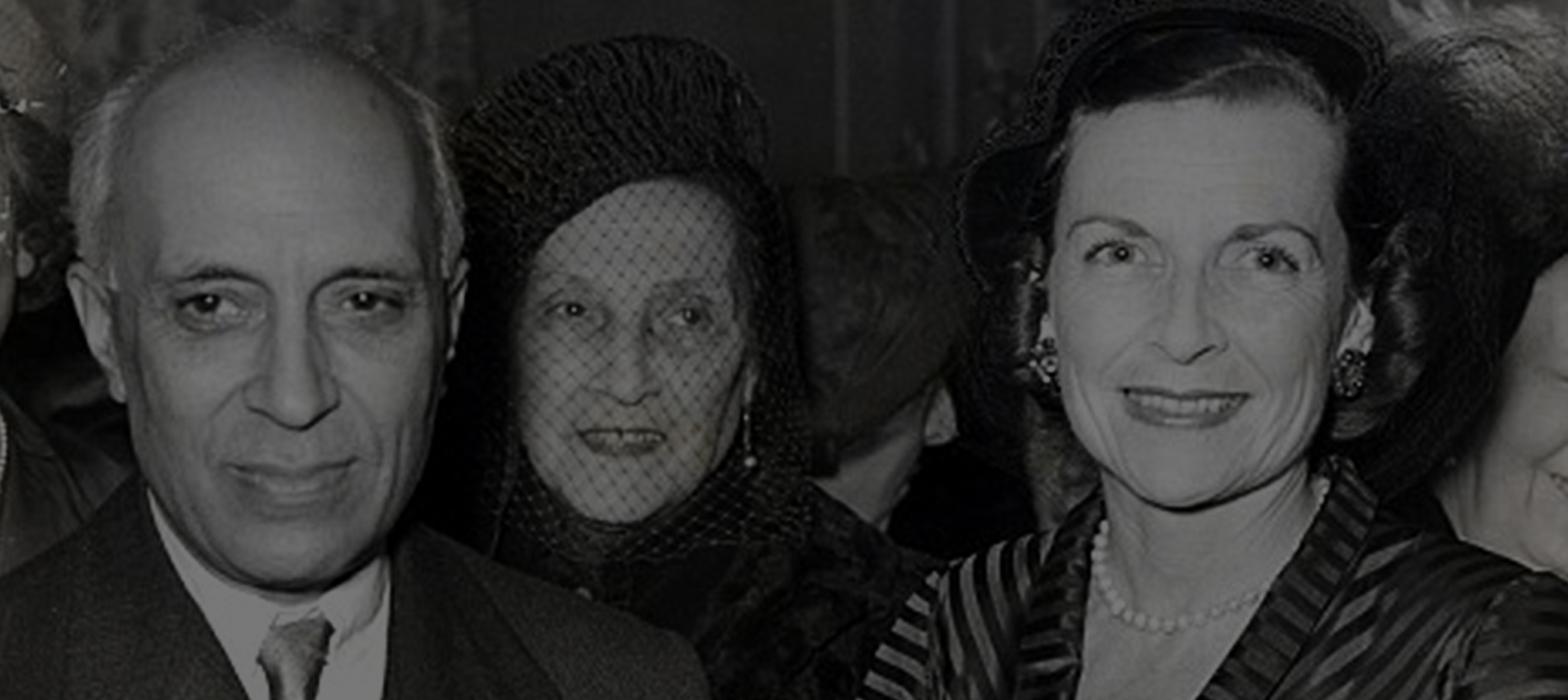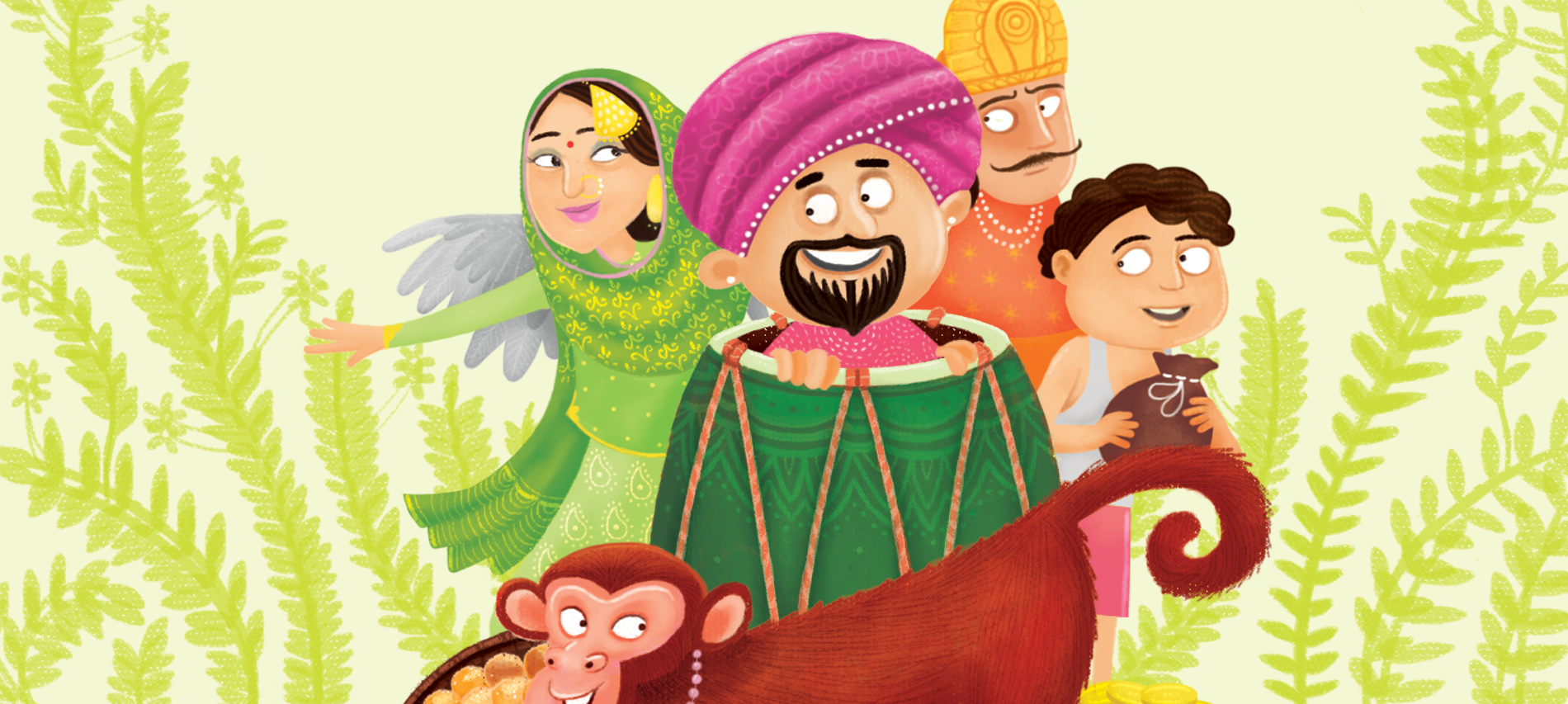By Rhiannon Jenkins Tsang
I know about historians. I am married to one! They look at the evidence, interpret it and make judgements to give you a balanced and judicious account. If you want a critical assessment of the historical setting in which Jawahar and Edwina developed their friendship, then you need a solid work of history. But if you want to understand the feelings, emotions, personal histories, tensions, contradictions and passion that drove them together, then you need a work of fiction.
The historical novelist does not pretend to be a historian. In some ways the net must be cast wider than that. Not only must a historical novelist have a thorough grasp of the period of the relevant political and social history, but they must also have an understanding of fashion, food and psychology- in sum be a jack of all trades! My aim in writing The Last Vicereine was to transport the reader back to the chaotic last days of the British Raj. I wanted to put the reader in Edwina’s and Jawahar’s shoes so that they could empathise with them and live moment by moment with them in their world. Unlike the historian, the historical novelist is not there to judge or assess, and needs to remember that historical figures and imaginary characters do not have the benefit of hindsight. This requires constant vigilance when writing. People in the novel might attempt to predict the outcomes of certain decisions and calculate their actions accordingly. They might genuinely believe that they were doing the right thing in the circumstances, and be acting out of the best of intentions, but history might judge them to be wrong. Today we all know that partition was a disaster, but no one at the time, neither British nor Indian had a full grasp of the horrendous short term consequences, never mind the long term implications of the decision to divide British India along religious lines.
So how exactly did I go about bringing Jawahar and Edwina to life? I began by avidly reading all the standard history books of the period and general histories of India. I then moved onto autobiographies and biographies particularly of Nehru, Gandhi and the Mountbattens, and supplemented this with as many diaries and memoires as I could get my hands on. The next step was to spend time in the Mountbatten archives going through the papers of Countess Mountbatten of Burma and some of those of her husband, the Viceroy. And finally I undertook a research trip to India so I could truly soak up the atmosphere. Only when I felt I had a full grasp of the locations and historical period and could enter the minds of the key players, did I begin to write.
It was at this stage that I stopped playing historian, pushed aside my own judgements, and put on my novelist’s hat. It was then that history moved from the foreground and took on a different function. It became both background set and plot driver. We know for example that some of Edwina’s letters of Jawahar were stolen in the run up to the transfer of power. What was in these letters? Who had sight of them? How did the characters react and what might have been the political consequences if they had been leaked?
Furthermore, Jawahar and Edwina were characters of their time. Both were born with silver spoons in their mouths and were respectively members of the British and Indian elite. This imposed certain restrictions, privileges, duties and obligations on them that conditioned their world view and actions. They cannot be judged by today’s standards.
While a historian might dread gaps or ambiguities in the record, the historical novelist can turn them to advantage. The blanks and omissions in the record are fascinating and exciting and are where stories lie. What are they hiding? What is missing? What might have been said or not said after a big meeting? Perhaps the minutes don’t exactly tell the full story. What might have happened at the party? What did the gossips say and what were the consequences of rumour and chatter on the political process?
The gaps leave space to imagine and create. For example, we know from the records that Lady Mountbatten had two female English secretaries on her staff. Unlike the men of Lord Mountbatten’s staff neither of them appears to have kept a diary or written or published memoires. Here was my opportunity to create the character of Letticia, Lady Wallace, a widowed school friend of Lady Mountbatten who served on her staff and became my narrator. She was privy to many private conversations, she became our eyes and ears and she took on an exciting and exotic life of her own.
For various reasons the main histories and records have dithered around the relationship between Jawahar and Edwina, partly because it was a private friendship, partly out of respect to the parties involved and also because it has been in the interests of both the British and Indian Congress establishments not to ask too many questions. Nevertheless, it is clear for example that Lady Mountbatten probably played a key role in saving the talks on the transfer of power from complete collapse in Simla in May 1947 and I enjoyed dramatizing this.
Today, with the benefit of hindsight, is easy to ask why on earth India should have been divided in 1947. The first thing to understand it that it was the end of the war. The Japanese had broken the will of the British in the Far East and the British people and State were exhausted. Nehru had spent years incarcerated in British jails and was no longer a young man. Jinnah too was old and probably knew that he was dying. In dramatizing the situation in Viceroy’s House in the spring of 1947, it was clear from my research that British India was in a state of virtual collapse. There had been a complete breakdown of law and order in some areas. The British were terrified, bunkered down with a siege mentality and planning for a mass evacuation of their nationals- to say this is not to absolve the British from their responsibilities.
In my novel, I attempt to reflect the sense that things were spinning out of control, the exhaustion, illnesses and at times sense of hopelessness and futility experienced by Edwina, Jawahar, the Viceroy and his staff. By May of 1947 it was obvious that a solution had to be found and quickly. It is not widely known that shortly after independence there was a real fear that the new government of India might have to be evacuated from New Delhi for its own safety. For a period of time the survival of the new India was in question, and Nehru had to work with Mountbatten as Governor General and the outgoing British administration to ensure the future of the new administration and preserve the illusion of central authority. Given this, perhaps we can understand the kind of pressures Jawahar and Edwina were under, their day to day experiences and the extreme stress they shared together, both of them constantly risking their own lives to serve India. Perhaps if we understand the kind of emotional stress they were under as public figures at an desperately traumatic time, we can they appreciate why they supported each other, why they cared about each other and perhaps also why some decisions were made in the way they were.
What is the truth of the Jawahar Edwina relationship? My own sense is that there was certainly a deep physical attraction but that it was a friendship between two older people based on emotions and the mind. Both would have counted themselves as socialists. They shared interests in art, history, music and poetry and enjoyed riding, swimming and hill walking together. Edwina was also an experienced aid worker before she became Vicereine of India. She was good with people, having a common touch, and worked valiantly to get aid to refugee camps both before and after partition. Again this is not really known in India today. But Nehru saw how hard Edwina worked and appreciate all she was doing for India. Both were public figures with a keen sense of public service and duty and they understood that this came at huge personal cost. Somehow, they managed to carve out a private space for their friendship and to continue to meet, correspond, and support each other emotionally until Edwina’s death in 1960. Perhaps one day, if the full content of the letters between becomes publically available, we will know more. But we will always need historical fiction to bring the past to life. Jawahar and Edwina’s friendship is arguably the greatest love story of the twentieth century. If Shakespeare were alive today, he might not have written Anthony and Cleopatra but rather Jawahar and Edwina.
About the Author
Rhiannon Jenkins Tsang is a British writer. Her work focuses on historical fault lines and themes that are globally significant. She studied Oriental Studies at St. Anne’s College, Oxford, and is a non-practising lawyer. She is fluent in Mandarin and Cantonese.

Tag: featured
7 Quotes by Famous Authors That Will Make You Reminisce Your Childhood
As life brings with it moments of laughter and hardships in equal measures, the memory of childhood slowly begins to fade away. Or does it? Well, some of our favourite writers and personalities from history would beg to differ.
This Children’s Day, get inspired to grow ‘down’, because where’s the novelty in growing up?







The golden days of childhood were glorious, weren’t they?
‘The Tale of the Turban’: ‘Junior Lives: Mahatma Gandhi’ — An Excerpt
Mahatma Gandhi’s journey is inspirational for reasons one and many. His struggle to lead India to independence did not only happen on home ground in India, it went far beyond that, all the way to South Africa.
In this excerpt from Sonia Mehta’s Junior Lives: Mahatma Gandhi, we catch a glimpse of the man with his principles and values holding steadfast even during an hour of crisis.
Was GandhiJi’s time in Durban a good one? Let’s find out!




Amazing, isn’t it? To share the lesser known story of the Father of our Nation with your child, grab a copy of the book today!

‘I will tell the king there are no supermen in this village’: ‘The Magic Drum and Other Favourite Stories’ — An Excerpt
‘I will tell the king there are no supermen in this village’: ‘The Magic Drum and Other Favourite Stories’ — An Excerpt
We learned our first stories much before we learned to read. Our parents and grandparents sat us on their laps and took us to wondrous lands of kind kinds and clever, talking animals who taught a valuable lesson silently.
A brilliant collection of such beautiful, heartwarming stories by Sudha Murty that she grew up on as a child, ‘The Magic Drum and Other Favourite Stories’ is sure to take you down nostalgia lane and fascinate your child on a warm, lazy afternoon.
Here’s a snippet from the book about men from a small village who thought they could outsmart everyone else!
The Supermen
The men of Suvarnanagari were very lazy. They only liked to gossip and tell each other tall tales. As soon as the sun rose, the men would tuck into a hearty breakfast and start gathering in groups. Then they would spend the rest of the day telling each other impossible stories. They came back home only at lunch and dinner time.
Suvarnanagari had fertile land all around it, and if the men had spent even a little time in the fields, they would have reaped wonderful crops. But as they did nothing, all responsibilities ended up on the shoulders of the women, who had to slave the whole day. They cooked, cleaned, sent the children to school, worked in the fields, took the crops to the market—in short, they did everything. One day, the tired women got together and decided the men needed to be taught a lesson. Someone suggested writing to the king, who was known to be just and kind, about their problem. So a letter was written and sent off. The women went back to their work, but kept a sharp lookout to see if the king would send any help. But many days passed, and slowly the women began to lose hope. After all, why would the king of such a vast empire be concerned about the plight of a few women in a tiny village like theirs?
A month passed by and soon it was a full-moon night. The men ate their dinners and, because it was so beautiful and well-lit outside, they gathered again to chat and boast. That night, they were trying to prove to one another that they were capable of performing the most impossible tasks. As they sat talking, and the stories flew around, a tall and handsome stranger joined them. Seeing his noble features and intelligent eyes, each man wanted to prove himself better than the others and impress him.
One said, ‘I knew the map of our kingdom even before I left my mother’s womb. As soon as I was born, I ran to the capital and met the king. My mother had such trouble bringing me back home!’
Everyone was impressed with this story. But not to be outdone, a second man said, ‘So what is so great about that? When I was just a day old, I could ride a horse. I sat on a big horse and rode all the way to the king’s palace. He received me with a lot of love and we had the most delicious breakfast together.’ At the thought of food, everyone got dreamy-eyed and the story was greeted with a round of applause.
Now a third man said, ‘Huh! That’s nothing. I sat on an elephant when I was a week old and had lunch with the king in his palace.’
Before the admiring murmurs could die down, a fourth one said, ‘I was a month old when I flew like a bird and landed in the king’s garden. He picked me up lovingly and even let me sit with him on his throne.’
While everyone seemed to be awed by these stories, the stranger spoke up. ‘Do you four men know the king very well?’
‘Of course we do!’ they replied together. ‘Our king knows and loves us. In fact, he is proud to have supernatural beings like us in his kingdom.’
The stranger looked thoughtful. ‘That makes my task so much easier . . . You see, I work in the king’s court. Some time back, the king had called four supermen to the city in order to repair a large hole in the city walls. As you know, we use the largest, toughest stones for building these walls, and they could be lifted and put in place only by these supermen. The four asked to be paid in gold bars and the king gave them the money. But that night itself they disappeared from the palace. I have been wandering the kingdom ever since, looking for them. The king has ordered me to find the four men and bring them back to the capital to finish the work. They will also have to return the gold they ran away with. It looks like my search has finally ended. I will take you four to the king, along with the gold you stole from him . . . And I shall be the rich one now.’
By the time the stranger finished telling this amazing story, the men’s faces had turned ashen. What trouble had their lies landed them in? Together they dived at the stranger’s feet.
‘Save us!’ they wailed. ‘Those were all lies. We are just a bunch of lazy men. If you forget our stories, we promise to stop telling lies and do some honest work.’
The stranger smiled. ‘So be it. I will tell the king there are no supermen in this village. Only hardworking, ordinary men and women.’
That night itself he left the village, and the women were sure they saw a happy twinkle in his eyes as he rode away on a handsome, white horse, fit to belong to the king’s stables!
While you keep digging up more from your childhood’s collection, grab a copy of this fascinating book!
And while you’re at it, don’t forget to pre-order a copy of the master storyteller’s newest book soon to hit bookstores!

Reasons That Will Make You Pick ‘The Golden House’ As Your Next Read
Salman Rushdie is a maestro when it comes to literature. His books enrich and push the boundaries of our imagination. His latest novel, The Golden House´ is another stellar addition to his already magnificent bibliography.
The Golden House is the story of the powerful Golden family, told from the point of view of their neighbor Rene. Copiously detailed and sumptuously inventive the novel is a modern epic of love and terrorism, loss, and reinvention.
Here are some reasons why you should make it your next read.
The novel captures the current political climate

The formula for a perfect read.

Lucky 13!

The switch of the year!

Intrigued? Tell us what do you like most about Rushdie’s writings.

5 Reasons Why Army Life is Good Life
Life of an Army official as we know is one of hardship, and their turbulent affair with unknown danger and hazards is something not unheard of. Rachna Bisht Rawat’s Shoot.Dive.Fly presents a multidimensional picture of Army officials and their life. She debunks the myth that an Army officer is a man with a gun who lives on the borders of the country, cut off from the rest of civilization, and waiting for war to begin. What we don’t know is that life can be amazing for an Army official too.
Here are 5 reasons which elaborate why Army is amazing
When you get to fly around

Motivation and encouragement all the way

Lieutenant Mohammad Haseeb Khan’s message to those considering a career in the Army

The recognition that Army offered her

Army Life offers you to defy gender norms and touch the sky

Get to know more about the Army life and its thrilling experience in Rachna Bisht Rawat’s book Shoot Dive Fly

6 Times Every Indian Woman Could Relate to Mrs Funnybones
Twinkle Khanna’s Mrs Funnybones has successfully sent readers into laughing fits ever since it first hit bookshelves. A hilarious, yet critical look into our lives and everyday world, Mrs Funnybones often shows us how even a celebrity faces the same dilemmas and woes like all of us do!
Here are 6 instances from Twinkle Khanna’s best-seller which are sure to strike a chord with every Indian woman!
The holy triumvirate in every Punjabi home

A woman’s everyday struggle with all kinds of stains

Because naps are the secret to a happy life

The ‘karwa’ truth?

It’s not a tug-of-war, but a constant war inside one’s head!

The piece of advice one gets without fail but absolutely does not need

Are you having major deja-vu yet?

Making of a CEO, An Excerpt
Sandeep Krishnan is an adjunct professor at IIM Bangalore. His book ‘Making of a CEO’ found its genesis in a popular course he taught at IIM Bangalore, where the students interviewed and analyzed twenty CEOs to learn how they charted a clear path to the top. The book explores nuances of leading in different contexts like start-ups, large corporations, family businesses, educational institutions, not-for-profits, public sector and the government.
Here’s an excerpt from the book.
The chief executive officer (CEO) epitomizes the organization. The organization’s existence and its future are defined by the role the CEO plays. The CEO is the ultimate decision maker and can often be defined as a combination of a chief operations, marketing, finance, people and communications officer apart from the other key roles. The success or failure of the organization is often directly attributed to the CEO. At one level, the CEO is also the chief decision officer.
Great CEOs leave their footprints behind. They have the ability to transform businesses and even change the way society operates. Bill Gates changed the way the world works with Microsoft. Steve Jobs changed the way the world designs gadgets with Apple. N.R. Narayana Murthy of Infosys paved the way and showed how corporations can share their wealth with employees in India. Dhirubhai Ambani, founder of Reliance, showed how an entrepreneur can start from scratch to create an empire. Larry Page and Sergey Brin, co-founders of Google, changed the way the world searches for information. It is amply clear that every CEO has a unique opportunity to leave behind an enduring legacy.
In this book, the word CEO is sometimes used synonymously with positions such as managing director and chairman if the incumbent is also, in many ways, handling the operating role of running the company. Research shows that the role of a CEO is becoming more significant and often has a more direct impact on the company’s performance. With the environment of organizations becoming more dynamic and competitive, it is the top management’s strategy led by the CEO that can steer the company towards sustained growth. A CEO also shapes the culture of the organization—either sustaining or changing it. An interesting example of this would be of the ex-chairman of IBM, Louis V. Gerstner, who is credited for its turnaround. Gerstner revived the ailing IBM by pulling the levers of its culture, changing the attitude towards teamwork, providing solution to the customers, integrating different business units, changing the measurement of results, and improving communication with external and internal stakeholders. In the end, it is a well-known fact that Gerstner got IBM to dance!
There are leaders in corporates, NGOs, government and public sectors who have made a tremendous impact. There are great examples of public servants heading government enterprises and making a lasting impact on society. In India, E. Sreedharan illustrated how a government servant can influence society by high levels of effectiveness. He is credited with the successful execution of key projects that helped the Indian public. This includes the Konkan Railway, a 741-kilometre line that connected Mumbai to Mangaluru. As per Wikipedia, ‘With a total number of over 2,000 bridges and 91 tunnels to be built through this mountainous terrain containing many rivers, it was the biggest and perhaps the most difficult railway engineering project in the Indian subcontinent at the time.’ He was then entrusted with another key project: to develop the metro lines for urban transport in the National Capital Region (NCR), called the Delhi Metro. The success of the project gave E. Sreedharan a new name: ‘Metro Man’. The ability to lead and make a difference in the society has made E. Sreedharan one of the most successful CEOs that India has seen in the recent past.
Verghese Kurien, known as the Father of the White Revolution, made a tremendous mark on the cooperative movement in the country. He is credited with establishing Amul and the National Dairy Development Board (NDDB). Kurien was able to bring dairy farmers into the fold, changing the dairy supply chain of the country. His ability to organize the cooperative movement, first in Gujarat through Amul and then later to replicate the experiment across the country through NDDB, points to a leader who could articulate a vision and execute it to make a large-scale institution.

5 things Messi and Neymar Have Done Off Field
Motivation and determination drove Messi and Neymar to achieve what the world bestowed. Their accomplishment on the pitch is well known to lovers of football. The contribution made by them transcends the boundary of the pitch – and reaches people who require them the most. The football idols have contributed tremendously to those who are deprived of basic needs and wants.
Here are a few contributions they have made off the field.





Know these footballers more in Luca Caioli’s biographies of Lionel Messi and Neymar Jr.
Through the Past into the Future, An Excerpt from Yashwant Sinha’s Essay in ‘Left, Right, and Centre’
India’s magnificent plurality can not be contained in a homogenous sentence that favours only one side of the scale. Taking up this monumental challenge is Nidhi Razdan’s ‘Left, Right and Centre: The Idea of India’ that celebrates every aspect of the country, since its Independence 70 years ago.
In his essay ‘Through the Past into the Future’, Former Finance Minister, Yashwant Sinha, talks about the way forward despite all the major roadblocks a country of teeming billions faces every day. In spite of the many governments India has seen since its Independence, and in spite of all that it has achieved, Sinha highlights the pressing concerns that still keep the nation from being the superpower it deserves to be.
Here’s an excerpt from his essay.
It is debatable whether India has achieved all it should have in the seventy years since independence. On the one hand, we have sent the Mangalyaan to explore the planet Mars. Our space agency is capable of launching more than a 100 satellites together. We lead the rest of the world in information technology. Yet, there are hundreds if not thousands of villages which lack the basic amenities of life like an all-weather road, potable drinking water, proper sanitation and health facilities or proper schools. Unemployment continues to be a major problem.
Every government claims to have done its best to solve these problems yet they refuse to go away. Governments are always short on resources; the tax base does not expand despite inspector raj. Only the poor and the innocent are caught and the rich and famous get away. Millions of cases are pending in courts, the jails are full of undertrial prisoners, many of them having spent the maximum jail term which their crime may have merited. There are many ills from which we suffer today. We have miles to go before we rest. But what is the goal that we must set for ourselves for the remaining decades of this century and what are the means by which we can achieve it?
India must strive to reach the top of the league of nations— the top two or three in the world. That is our destiny and we must fulfil it. To arrive there, we must eradicate the bane of poverty, misery and deprivation in our society at the soonest. It is not difficult to achieve this goal.
Our two-pronged strategy should consist of high and sustained economic growth of around 8 per cent per annum for the next twenty years or so and a direct attack on poverty and deprivation. In an uncertain global scenario where globalization is on the retreat and economic nationalism is coming to the fore, we must depend on our own demand, our own resources and our own people to achieve the desired growth rate.
We have massive unmet demand in our economy. Our country is crying out for modern infrastructure. We must build lakhs of kilometres of roads of all kinds, national highways, state highways and rural roads, to connect our country and its people. We need irrigation works especially of the medium and the minor kind to irrigate our still-parched fields. We need all kinds of power, renewable and thermal, to light up our homes, irrigate our fields and run our factories. We need new towns and cities to provide for the population migrating from the rural areas into modern urban centres and to relieve the pressure on farmland and the villages, as well as the existing overcrowded and choking cities. Then, there is the issue of connectivity of these places with modern means of communication like railways and air services, telecom and fast Internet services.
Many more universities are needed and also other centres of excellence. Similarly new research facilities in science and technology are required to meet our growing needs. There is so much to do that the list can go on endlessly. All these activities will contribute to economic growth and generate employment. There will be no dearth of resources. People will always be ready to pay for the services they receive provided they are of quality and are uninterrupted. Resistance comes only when the services supplied are of poor quality and their regular supply is disrupted.
Our Constitution has given primacy to the individual not to the village. I do not know whether that is the reason for the neglect of the village. In the process the individual has also suffered. Is it possible, for a change, to accord primacy to the villages in our country and for the political class to take a vow that the improvement in the quality of the people living in them shall be the first charge on the nation’s resources?
A survey should be conducted in all the villages to find out what is lacking there in terms of basic amenities. We should then prepare time-bound plans to provide them with what they need in a pointed, directed manner much in the way in which the doctors treat cancer patients with radiation. In this way, we shall achieve our goal of improving the life of our fellow citizens within the same resources. Liberation of Indian villages from their wants must be our new battle cry.
Underlying all these activities on the nation building front is the need for political and governance reforms. I have already stated above how politics in this country reached its nadir with criminalization and the use of money power in the elections. Some improvement has taken place but a lot remains to be done. A beginning must be made with the democratization of political parties. Internal democracy within most political parties is becoming increasingly rare. Stricter laws, to be enforced by the Election Commission with the threat of de-recognition, are needed to force political parties to abide by these laws and rules.

















